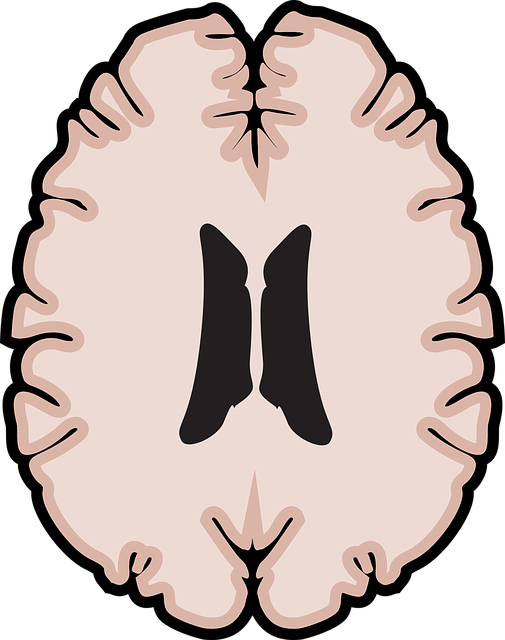Mental health care professionals utilize risk assessment tools to ensure patient safety and tailor interventions, integrating psychology, sociology, and specialized treatments like Parker Alcohol Abuse Therapy (PAAT). Effective assessments for alcohol abuse, as advocated by PAAT, include detailed substance use histories, current symptoms, compassion cultivation practices, anxiety relief techniques, and tailored therapeutic interventions. Implementing PAAT requires a multifaceted approach with regular evaluations, adaptive strategies, and feedback mechanisms, combining PAAT with structured Mental Health Education Programs for holistic issue resolution. This comprehensive approach equips individuals to cope with triggers and maintain sobriety, ensuring long-term effectiveness.
Mental health professionals regularly confront risks inherent in their work, from patient disclosures to personal boundaries. A thorough understanding of risk assessment is paramount for mitigating these dangers. This article guides practitioners through essential components of a comprehensive risk assessment, focusing on alcohol abuse, with a special emphasis on the Parker Alcohol Abuse Therapy approach. By navigating these steps effectively, professionals can enhance patient safety and maintain ethical standards in their practice.
- Understanding Risk Assessment in Mental Health
- Key Components of a Comprehensive Risk Assessment for Alcohol Abuse
- Implementing and Monitoring Parker Alcohol Abuse Therapy Effectively
Understanding Risk Assessment in Mental Health

In the realm of mental health care, risk assessment is a cornerstone of effective practice. It involves systematically evaluating potential hazards and vulnerabilities that patients may present, enabling healthcare providers to deliver tailored interventions. This proactive approach ensures the safety and well-being of both clients and professionals, fostering an environment conducive to healing and recovery. By integrating knowledge from various disciplines, such as psychology, sociology, and even fields like Parker Alcohol Abuse Therapy, mental health practitioners can navigate complex cases with heightened awareness.
Mental Health Awareness is paramount in this context, as it highlights the diverse factors that contribute to a person’s mental state. Healthcare Provider Cultural Competency Training plays a pivotal role in enhancing these assessments by equipping professionals with the skills to understand and appreciate cultural nuances. This training ensures that practitioners can offer unbiased support, addressing not just the primary concerns but also the unique circumstances surrounding each individual, ultimately facilitating Anxiety Relief and promoting holistic mental health.
Key Components of a Comprehensive Risk Assessment for Alcohol Abuse

A comprehensive risk assessment for mental health professionals should encompass several key components when addressing alcohol abuse, especially in the context of Parker Alcohol Abuse Therapy. Firstly, a thorough evaluation of the individual’s history with substance use, including onset, duration, and any patterns of abuse or dependence, is imperative. This historical perspective provides insights into potential triggers and risk factors. Secondly, assessing current symptoms and behaviors related to alcohol consumption is crucial. Mental health professionals should look for signs of excessive drinking, blackouts, and the impact on daily functioning, relationships, and overall well-being.
Additionally, incorporating compassion cultivation practices and promoting anxiety relief techniques can be beneficial during this assessment process. Boosting confidence through therapeutic interventions tailored to individual needs is another critical aspect. By integrating these components, mental health professionals can offer more holistic support, enabling individuals to address alcohol abuse effectively while fostering resilience and coping strategies for long-term recovery, as advocated by Parker Alcohol Abuse Therapy.
Implementing and Monitoring Parker Alcohol Abuse Therapy Effectively

Implementing and monitoring Parker Alcohol Abuse Therapy (PAAT) effectively is a multifaceted process that requires rigorous evaluation and adaptive strategies. Mental health professionals play a pivotal role in ensuring the success of PAAT, which goes beyond mere adherence to therapeutic protocols. It involves creating an environment conducive to emotional regulation, fostering resilience building among clients, and integrating feedback mechanisms within the therapy framework. Regular assessments help identify areas for improvement, allowing therapists to tailor interventions accordingly.
By combining PAAT with well-structured Mental Health Education Programs Design, professionals can empower individuals to navigate their alcohol abuse issues holistically. This involves not only addressing the physical aspects but also focusing on psychological and emotional components. Resilience Building is a key outcome of successful PAAT, enabling clients to cope with triggers and maintain sobriety in various settings. Through ongoing monitoring and adaptive practices, mental health professionals contribute significantly to the effectiveness and longevity of Parker Alcohol Abuse Therapy.
Mental health professionals must adopt a proactive approach to risk assessment, especially regarding alcohol abuse. By understanding the key components of a comprehensive evaluation, such as those outlined for the Parker Alcohol Abuse Therapy, practitioners can effectively identify and mitigate risks. Implementing evidence-based strategies, like the Parker therapy, allows for tailored interventions, enhancing patient safety and outcomes. Regular monitoring and ongoing education are vital to staying equipped in this dynamic field.












